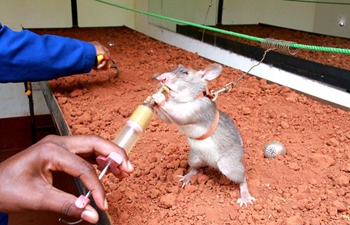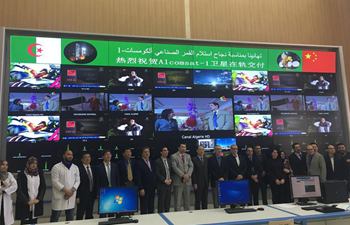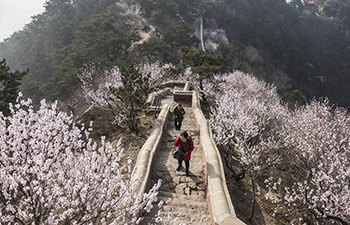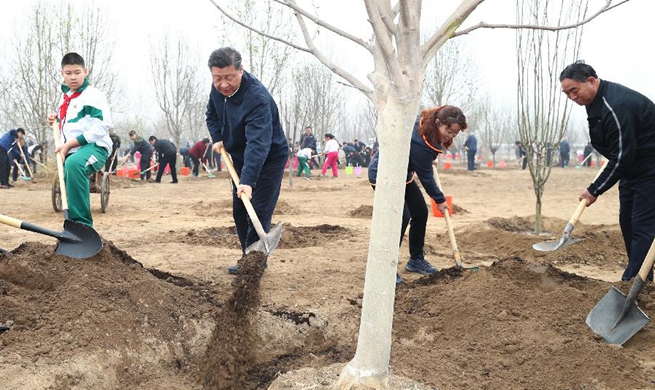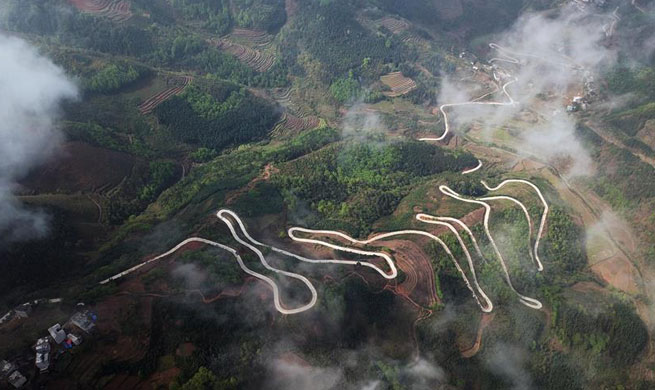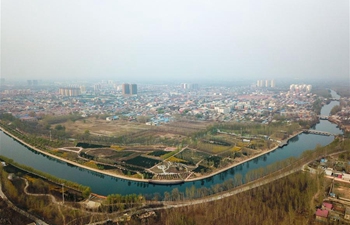GUIYANG, April 3 (Xinhua) -- Yang Kexin, 28, is obsessed with exploring the sky.
She calls herself a meteorite hunter and compares her searches for fallen space debris to searching for a lost kite that has broken free from its string.
Her hobby began in 2012 when she was making her living selling coal mining equipment in Xinjiang Uygur Autonomous Region. "Lots of people there love looking for rare stones, and I too became enraptured by searching," she said.
She often went into the desert to look for fallen "stars."
"One of our team worked at the local geological department and knew the Gobi very well," she said. "On every trip we had to carry tents, water, food, GPS equipment and walkie-talkies."
Meteoroids mostly burn up or explode while passing through the atmosphere. Those that make it to the ground are known as meteorites and are often found in groups known as strewn fields.
"Searching for a genuine meteorite not only needs experience, but requires a lot of hiking. Whenever one is found, we mark the position and take pictures. By accumulating more information, we can judge where the strewn field is," Yang said.
The journey is never easy. Yang and her crew must endure baking sun, drought, sandstorms and ferocious wild animals that appear from time to time. The place they visit most frequently is Lop Nur, a dried-up salt lake located between the Taklimakan and Kumtag deserts in the southeastern part of Xinjiang, a round trip of 1,000 km.
"The first meteorite I found was black and very small," Yang recalled, but the joy she felt at that time has never faded. Sometimes, when she looks up in the sky in the wild, she feels it is so close that she can almost reach for the stars.
Over the past five years, she has been into the desert hundreds of times, covering around 80,000 km. She has found over 600 meteorites, weighing more than 400 kg.
The collection is witness of the years and effort of Yang's youth, but what do with them has become a puzzle for her.
In early 2017, she brought most of her collection back home to southwest China's Guizhou Province and opened a small museum at the suggestion of her friends.
"Almost all the local geologists and astronomers have visited my museum. They gave me great confidence," she said. "I want to help people love and know about meteorites and contribute to their study."
In her spare time, she reads astronomy books or plays the Guqin, a Chinese musical instrument. In the future, she wants to open courses in schools and perhaps partner with FAST, the world's largest single-dish radio telescope, which is not far from her museum.
"In spite of their unattractive appearance, meteorites are mysterious and are important channels for us to study the origins and evolution of the solar system," she said. "They are the fossils of the solar system."






